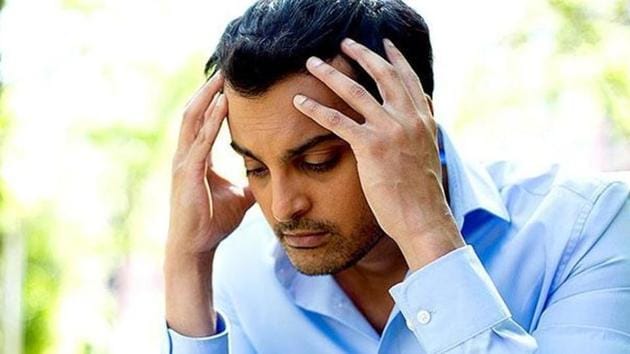
There are two types of headache: migraine and dehydration. Technically, it can be either. In fact, it may just be a migraine causing your headache or dehydration causing your headache. But there are several ways that you can differentiate between the two.
The first one is called a migraine, which affects the area around your eyes. While migraines are usually brought on by a certain amount of stress on your head, dehydration headaches are usually caused by dehydration. For example, if you're dehydrated because you don't drink enough water, the headache that accompanies that headache might be dehydration. It's not uncommon for dehydration to cause migraine headaches as well.
Dehydration can cause nausea, dizziness, vomiting and sweating. Dehydration headaches are usually caused by dehydration because the brain doesn't get its normal supply of blood and chemicals, which causes the headache. If you are trying to determine whether it's migraine or dehydration causing your headache, look for symptoms of nausea and dizziness in addition to those of a headache. Your headache might be caused by dehydration but it may also be caused by nausea.
In some studies, migraine headaches can be caused by both dehydration headaches. There are other studies where dehydration was found to cause migraine headaches. These studies, however, did not make a definitive connection between the two.
Another way to tell if you have a migraine or dehydration headache is to try taking an ice pack on your forehead. You might be surprised at how much relief it gives. However, keep in mind that taking an ice pack does nothing to stop the pain or make the headache go away.
Dehydration headaches aren't always severe. In fact, in some cases, they can even cause less pain. You might experience mild to moderate pain during this time if you don't take care of the dehydration problem immediately.

If you already have a headache and it doesn't seem to go away, then you need to get to the doctor right away
Your headache may be a sign that you have a severe dehydration problem. The doctor may want to check you into a hospital if you are in serious trouble.
If you are having trouble with your headache and are in trouble finding a cure, then seek the advice of a doctor immediately. He or she may be able to help.
You can prevent headache problems from occurring by drinking enough water. When you feel the first headache coming on, drink plenty of water and if you need to stay in bed to recover from it, then you need to take another bottle.
Dehydration can also occur if you don't exercise enough. If you are working out too much, try to work less out if at all and if possible, take the same amount of time off.
If you want to prevent a dehydration headache, then it's important to take care of the problem as soon as you find it. so that it doesn't get any worse. After the headache has gone away, you should continue to drink lots of water and make sure you get the recommended amount of rest.
Dehydration headaches can cause the brain to work overtime and cause pain. The brain may even think it's in serious trouble when it doesn't need to be. When the headache sets in, you should try to relax and give the body the time it needs to cool down. Dehydration headaches are often caused by the dehydration headache setting in.
Taking care of the dehydration headache will make it less likely to set in. In addition to the headaches mentioned above, dehydration headaches can cause severe headaches if you're allergic to aspirin, ibuprofen or acetaminophen, if you are using corticosteroids or any type of medication or even when you're overusing the headache medicine. Always speak to your doctor if you've had one or more of these types of headaches and see if they might be causing it.